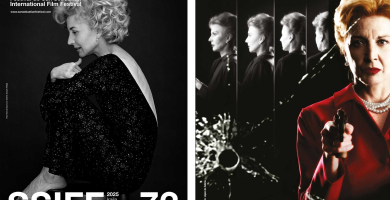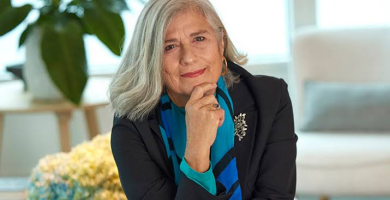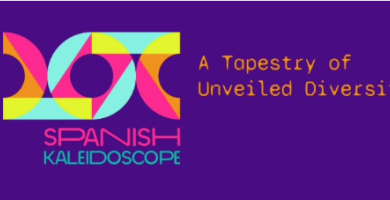
ISONA PASSOLA: "We’re very distinct compared with the others and we do it all in Catalan. It’s the only cinema in the world where the entire programme is in Catalan.".
This month we interview Isona Passola, film producer and screenwriter, who is also one of the founders of the new Espai Texas project. We talk with her about this multipurpose space which is reopening with two rooms for screening films in Catalan, two for theatre also in Catalan and a bar.

How did this project of converting the Texas cinema into the Espai Texas arise?
The workers from the cinema came to get me. They were in a very precarious and financially difficult situation because the cinema had closed. The cinema’s owners and the “Save the Texas” committee from Gracia also contacted me. They each came separately. I had a lot of work and I’d never considered it, but they were extremely insistent and insistence always wins. My son said to me: “Don’t say no, but we’ll prepare a business plan”. And as the owners were on our side and offered a reasonable and progressively increasing rent, it all worked out. But one of the owners died, and they decided to sell the cinema and the business plan went to the wall. It wasn’t financially viable and it scared me a lot. It was then that I contacted Anna Rosa Cisquella. We’d done theatre with her since we were very young with Bozzo and what was later Dagoll Dagom. She’s a very serious theatre entrepreneur. I told her I’d read in Libération that the premises that were now successful in Paris and London were those that had a more diverse cultural offering, which had a bar, were welcoming and attracted people to come to the cinema and to the theatre. People are looking for closer contact. After so much time online, people wanted to see each other, to touch each other, to talk and discuss. And I told her: “I’ll leave you the two rooms upstairs to do fantastic theatre”. In Gracia there aren’t any theatres of this size. There are many very small theatres. And also in Barcelona, there are very big or very small theatres. First she said no, but then she changed her mind. We prepared a project for the two rooms upstairs, with the architect who did the Teatre Lliure. We applied for subsidies, as it was a very interesting theatre given the size and above all due to this idea of being together with a cinema. I left her the two rooms upstairs for the theatre, but in the two downstairs, which are for 185 and 95, we continue to show films. This cinema also had a bar licence. With this idea of a diverse space, a meeting place like the bar was very important and the architect created this really lovely bar for us. When the actors from the play have finished at night, everyone stays here talking with them. What we foresaw would take place actually does occur.
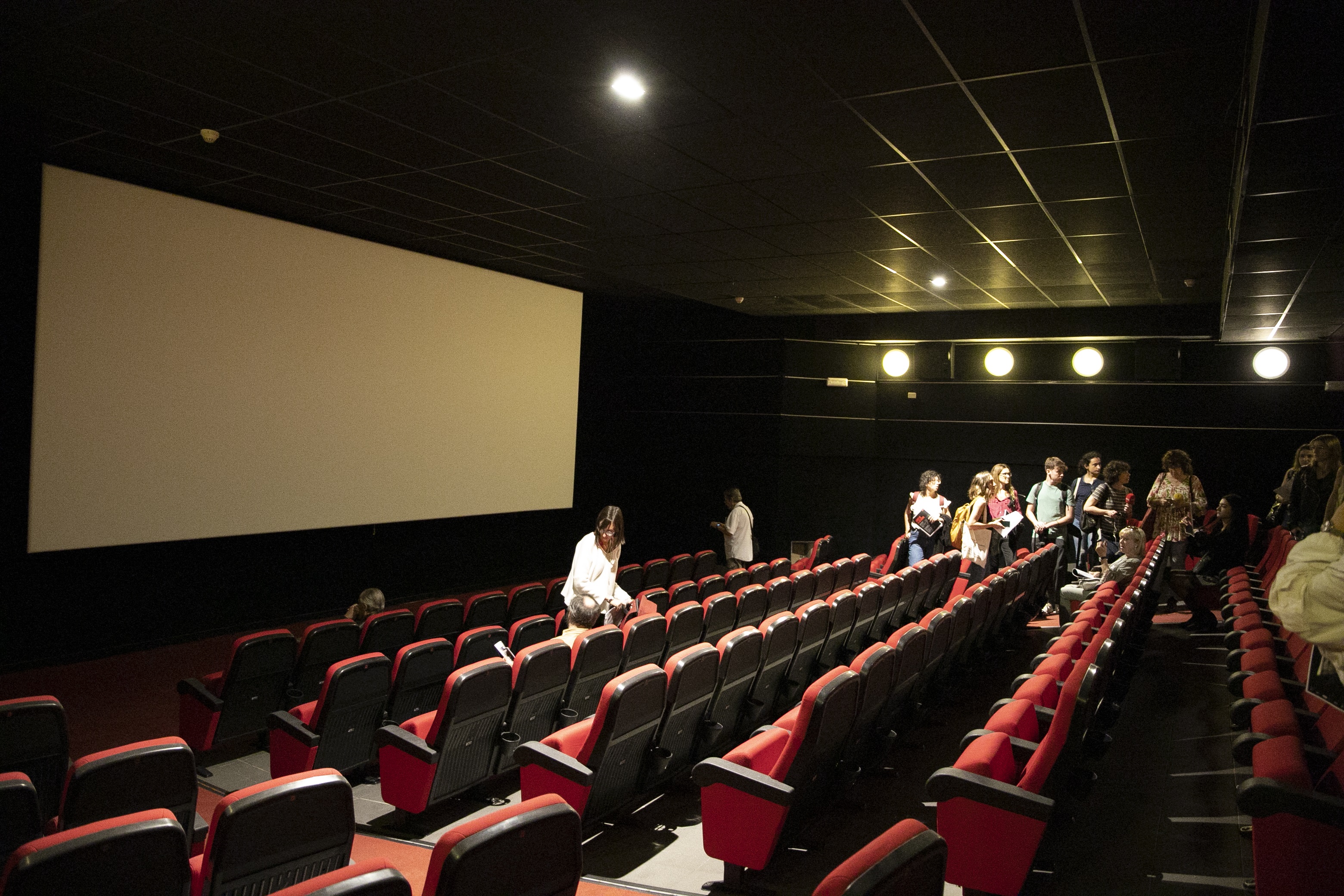
It’s always difficult at the beginning. There was great euphoria of participation. The government of Catalonia helped us with the building work and so did the city council. And also Parlem and Abacus, but it wasn’t enough. So we held a crowdfunding. Two thousand three hundred people participated and we raised €150,000, which we never expected to obtain. From people in Gracia, but not only from Gracia. Then we sold the seats. It was teamwork between the people from the theatre, from cinema, the young people from the project who were really dedicated to the cause. When we went out in the street, people hugged us. They still do.
When we made the decision, neither Cisquella nor I could buy it. So I went to Òmnium which also helped us. And they told us: “We’ll look for an estate agent for you or someone who can buy it”. But the person who wanted to buy it was an American to have a storage room. We asked him: “What will the storage room give you each month? We’ll give it to you”. And the intermediary said that he would convince him as he’ll have the same and he’ll save on the building work to make the storage room. But this means that we have high rent, we have it for 15 or 20 years and we can renew it. And, above all, the intermediary who talks with the American is really on our side. He’s actually a member of Òmnium from Gracia and he’s a very good estate agent. We’re very happy. It’s really invigorating and beneficial to be here, because everyone celebrates it a great deal. It’s an open place and everyone’s grateful to you. You can’t imagine what it’s like to be here while people go past.
Has the response from the neighbourhood been very good then?
Not just from the neighbourhood. We’re very distinct compared with the others and we do it all in Catalan. It’s the only cinema in the world where the entire programme is in Catalan. There are a lot of people committed to defending Catalan and who’ve understood that we’ve done this to maintain this language model. Otherwise, we wouldn’t have had the same response from the crowdfunding. People aren’t moved by opening a theatre, or by opening a cinema, but this is very emblematic and if on top of that you have the tradition that already existed from the stage under Ventura Pons of doing it all in Catalan, there’s a dual motive.
Will you screen local films?
The programme is the re-running of premium European films. Our prices are very affordable, €6 instead of the €9 that all cinemas charge. And on the viewer’s discount day, which is Thursday, €4. So we already have much more affordable prices. Why? Because we re-run the best films. We now have Barbie and you wouldn’t believe the success it’s having, but together with this in the original version in Catalan we’re releasing The Enchanted, Creatura, The Burning Cold, Cork, .. We’ve shown all the Catalan films. This ties in nicely with the theatre which shows Catalan plays; we’re now doing Australia and Pongo, theatre by women, young theatre which is very successful. We present Catalan playwrights, always in the original Catalan, because this is the image of the premises. Then, in the cinema we have subtitled films and, from time to time, we screen a dubbed film because some elderly people find it difficult to read. We have a combination. All in Catalan though. We have a fantastic programme. We’ve now achieved what is the most difficult, which is to get started and for people to come. We’ve had an open day and it went very well. We’ll have more in the future. We screened Almodóvar’s short film Strange Way of Life, which is a Western which is good as we’re called Texas, in English and dubbed. We had it on a loop and all the actors came to the theatre. There was a great deal of euphoria. It was packed.
The bar is also very important. It’s specialized in high-quality ham and cheese sandwiches. The one with truffle is called Truffaut. Caramelized suckling pig ham and cheese sandwiches. The the bar doesn’t have a smoke vent licence but we do, however, make super gourmet ham and cheese sandwiches and aperitifs. The idea of a meeting place is essential. It’s different going to see a film in the dark, by yourself or with your partner, to going out and discussing the film while you have a drink. The bar gives the experience full meaning. It’s an added value. And because we don’t have more space.
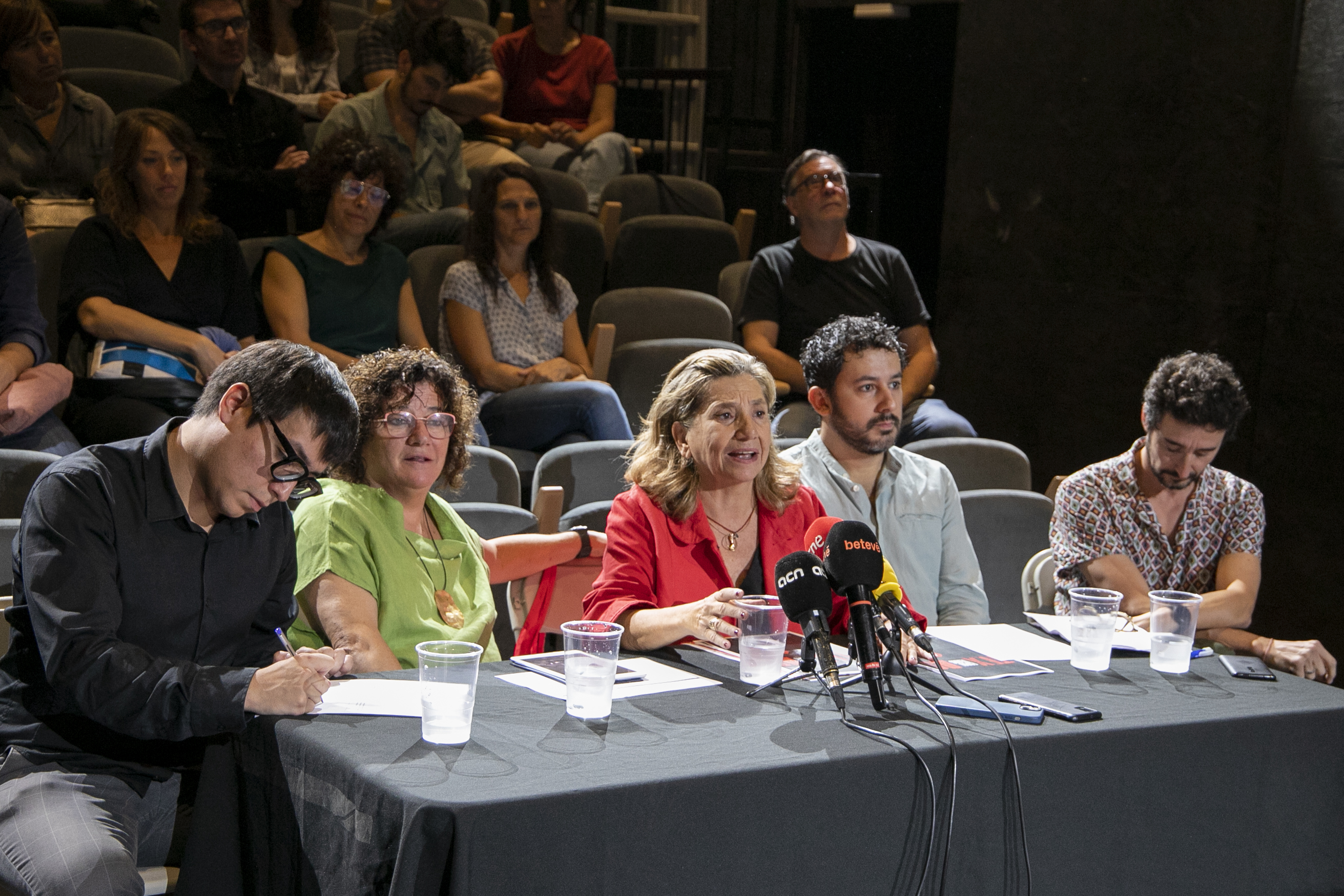
Before we talked about the crowdfunding to promote the project. We suppose one of the main difficulties of the project is funding. Have you encountered other difficulties?
Funding is priority number one. If we were rich and we could have paid campaigns in the newspapers, on television, then it would be much better. In addition to this there’s the communication, despite the fact that the company Barc, which is in charge of it, is very good. We’re optimizing resources, but with extra funding we could have more communication which is very important when you open a space, and then the dynamics are created.
What else will we be able to find in the Espai Texas apart from cinema?
Lots of things. Presentations are one of the things that will allow us to pay for the space, for example. The other day the series Això no és Suècia was presented. There will be festivals, which are already calling us and we offer them good conditions. Product presentations, rental of rooms, ... These rooms are super modern, comfortable with fantastic screens and projectors. They’re ideal to present any type of product. We have Parlem, Abacus, Òmnium, ... They could all come to present things and they are our patrons who help us with the funding. The rental of rooms is very important. The advantage that we have on renting rooms in a cinema is that here the catering works very well. Whatever you present, even if it’s a commercial product, when you come out here we have good Catalan wines and an ideal gastronomic choice for the catering. And this helps us to pay for this structure.
Will you also have morning sessions for schools?
There are morning sessions on Sundays and we’ll also have them in the theatre on Saturdays and Sundays. And then the morning sessions for schools that we’ll now begin are very important.
Do you think that it’s important to bring youth back to cinemas?
What’s wonderful is when small children go in; it’s great to see, because they’re used to watching everything on small screens. They go in and see the big screen and they’re speechless. Young people come to the cinema in groups. The Enchanted had a large young audience. And girls continue to come to Barbie.
As you mentioned, you’ve already officially opened the space. How is the experience going?
We’re opening gradually. We had the opening for the patrons, the opening with the sponsors and the authorities. We’re doing it little by little, so as not to create agglomerations and for it to work by word-of-mouth. Now we’re renewing all the toilets, for example. It had been closed for many years and everything was breaking. We’ve renewed the rooms, the washrooms, everything a little, ... We’re not sure about popcorn, but we’ll probably end up havin




